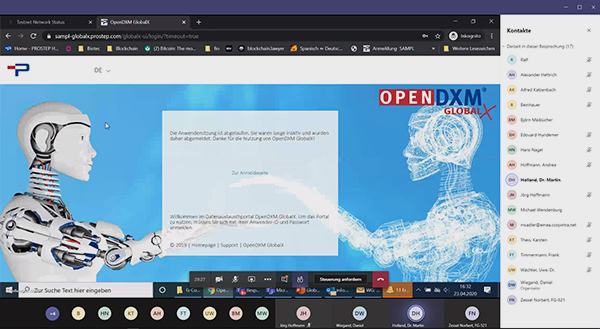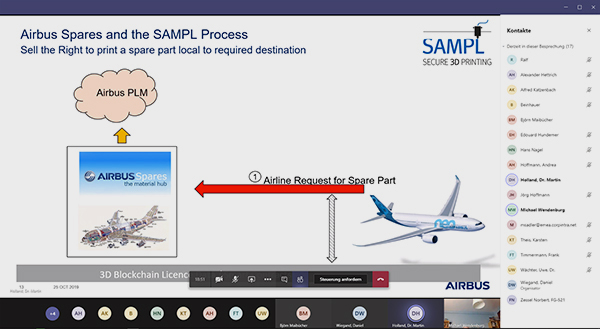
|
PROSTEP informs customers about blockchain technologyBy Daniel Wiegand Now that the SAMPL project has been successfully completed, PROSTEP has made the blockchain-based solution for the forgery-proof exchange of 3D print data part of its consulting portfolio. In an online discussion called TechTALK, our experts informed customers and interested parties about the blockchain and possible use cases in the PLM environment. As a basis for the discussion, Dr. Martin Holland first gave the participants a brief overview of how the blockchain works. Similar to the Internet, it is a disruptive technology, but it is not about the decentralized provision of information, but about the decentralization and transmission of values. What distinguishes the blockchain is that the information passed on cannot be subsequently changed because each miner creates a copy and each block of information is inseparably linked to the next by a cryptographic procedure. In order to create new blocks, the miners have to solve cryptographic problems. The process used by PROSTEP requires significantly less energy than, for example, mining with Bitcoin technology. In addition, it is also possible to embed executable software code, so-called smart contracts, in the blocks in order to map more complex processes, e.g. the activation of a vehicle as soon as the leasing rate is paid. 

A prerequisite for this is the use of certified 3D printers that support this technology and, for example, report back the printing status, as Holland said in response to a question from a participant. The blockchain not only enables the licensed production of a limited number of spare parts and traceable documentation of where they were built in which Holland demonstrated using the example of a use case at Airbus Spares. It also supports new business ideas such as the "Earn as you ride" program developed by automotive supplier Continental on the base of a blockchain platform. Drivers receive mini payments for information on free parking spaces or weather data, which their vehicles report back in encrypted form. |
|
| © PROSTEP AG | ALL RIGHTS RESERVED | IMPRESSUM | DATENSCHUTZERKLÄRUNG | HIER KÖNNEN SIE DEN NEWSLETTER ABBESTELLEN. |

